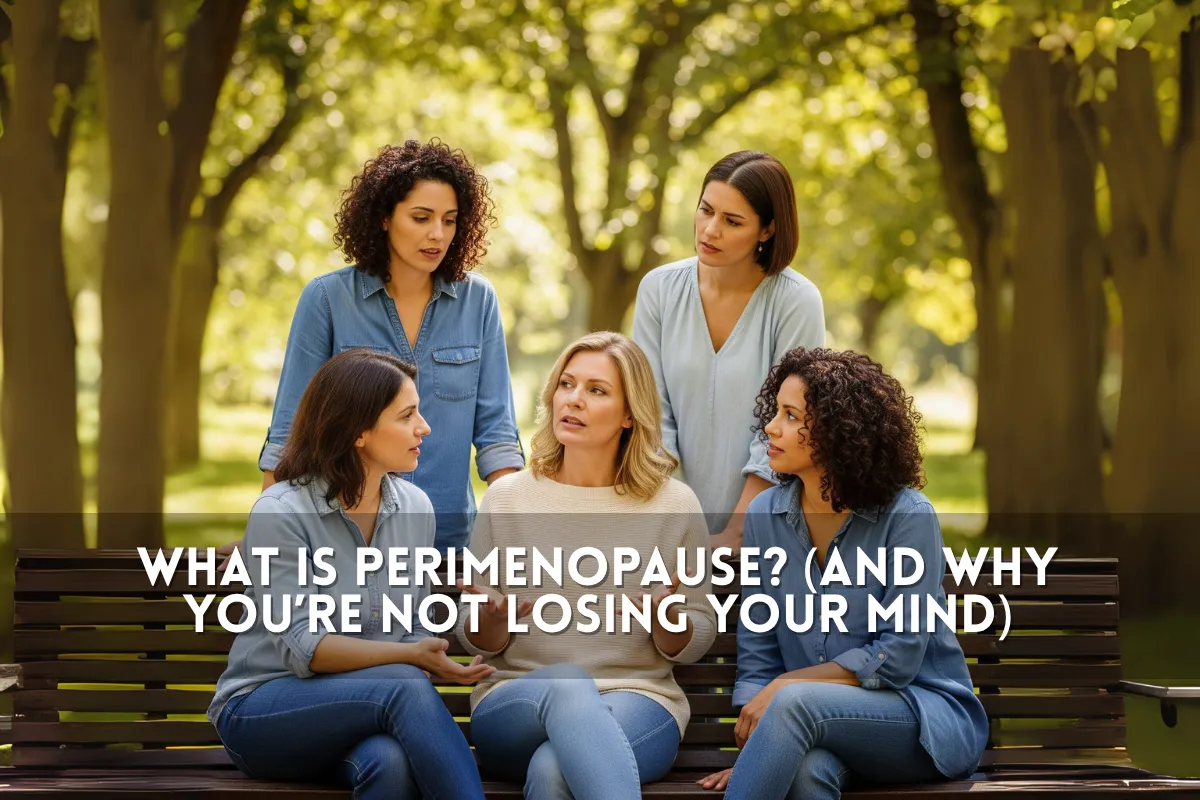
What Is Perimenopause? (And Why You’re Not Losing Your Mind)
What Is Perimenopause? (And Why You’re Not Losing Your Mind)
Let’s get one thing straight: perimenopause isn’t “just a phase”—it’s a major hormonal shift. It’s the time leading up to menopause when your estrogen and progesterone start fluctuating wildly, and your body starts letting you know that fertility is winding down—even if you’re not ready.
For most women, this starts in their 40s. But if you’re in your mid-30s and already feeling “off”? That’s not your imagination. It could be perimenopause starting early—especially if you have a family history, had a hysterectomy, or went through cancer treatment.
What’s Really Going On With Your Hormones?
Your ovaries are still working—but they’re getting inconsistent. Estrogen spikes high one day, tanks the next. Progesterone starts quietly fading. Testosterone takes a hit too.
That hormonal rollercoaster leads to:
Shorter, longer, or totally erratic periods
Hot flashes and night sweats
Mood swings that make no sense
Anxiety or depression
Brain fog and poor concentration
Vaginal dryness and pain with sex
Low libido
Trouble sleeping (especially between 1–3 AM)
Weight gain (especially around your middle)
Bone loss or rising cholesterol levels
Sound familiar? Then you're not just “stressed” or “aging”—you’re in perimenopause.
How Long Does Perimenopause Last?
On average? About four to eight years. (Yes, years.) For some, it’s shorter. For others, it drags on a decade. This phase ends when you’ve gone 12 full months without a period—then, and only then, are you considered in menopause.
How Functional Medicine Treats It Differently
Conventional medicine might offer you antidepressants, a birth control pill, or tell you it’s just part of life. Functional medicine says: Nope. Let’s get to the root of it.
We look at:
Full hormone panels—not just TSH or FSH
Adrenal function and cortisol rhythms
Inflammation, gut health, and nutrient levels
How your body metabolizes estrogen
Lifestyle and stress load
And then we create a plan that works with your body—not against it.
Treatment Options That Actually Work
If your symptoms are disrupting your life, you deserve more than a “just tough it out.”
Here’s what we use:
Bioidentical hormone therapy (customized and monitored)
Vaginal moisturizers and DHEA suppositories
Targeted supplements to support brain, bones, and hormones
Nutrition and movement strategies
Stress and sleep support (you can’t out-supplement cortisol overload)
Forget one-size-fits-all solutions. This is about giving your body what it needs—based on real data.
Bottom Line
Perimenopause isn’t a sentence—it’s a signal. Your body is shifting, your hormones are changing, and you get to decide how you want to navigate it.
You don’t have to suffer. You don’t have to guess. And you definitely don’t have to go through it alone.
Your Next Step
Feeling off, out of sorts, or like your body just isn’t working the way it used to? It’s time to get answers. Let’s test your hormones and build a real plan that works for you.


